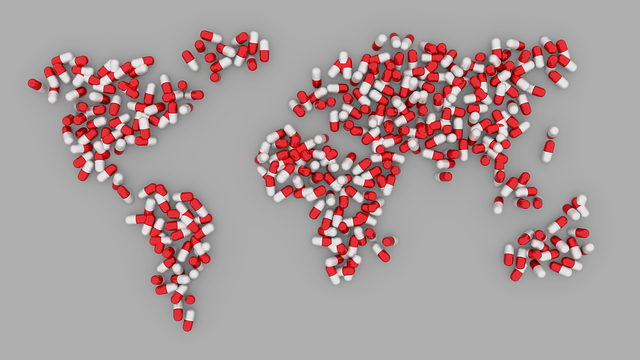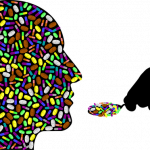I have seen countless individuals struggle with substance abuse and behavioral addictions. Breaking free from these addictive patterns can be a challenging process that requires dedication, discipline, and support. However, it is possible to overcome addiction with the right mindset and tools.
In this article, I will share advanced tips for breaking free from substance abuse and behavioral addictions. These tips are based on my extensive experience working with clients who have successfully recovered from their addictive behaviors.
Whether you’re struggling with alcoholism, drug addiction, gambling addiction, or any other form of addiction, these tips will help you take control of your life and achieve lasting sobriety.
Understanding The Root Causes Of Addiction
 Did you know that addiction affects over 20 million Americans? It is a complex issue with various factors contributing to its development.
Did you know that addiction affects over 20 million Americans? It is a complex issue with various factors contributing to its development.
Identifying the root causes of addiction is crucial in breaking free from substance abuse and behavioral addictions.
One key factor in understanding addiction is identifying triggers, which are situations or emotions that lead to cravings for drugs or certain behaviors.
Triggers can vary greatly between individuals but commonly include stress, trauma, relationship issues, and mental health disorders.
By recognizing these triggers and developing coping mechanisms, individuals can avoid relapse and maintain sobriety.
Another important aspect of overcoming addiction is seeking professional help.
Addiction recovery experts provide specialized care and support throughout the recovery process.
They can assist in identifying underlying psychological issues, teach healthy coping strategies, and offer guidance on creating a long-term recovery plan.
With their help, individuals can break free from addiction and live fulfilling lives without relying on substances or harmful behaviors.
Breaking free from addiction requires commitment, effort, and support.
By understanding the root causes of addiction through identifying triggers and seeking professional help, individuals can take the first steps towards lasting recovery.
Developing A Strong Support System
Understanding the root causes of addiction is crucial, but it’s just one piece of the puzzle. Developing a strong support system is equally important in overcoming addiction.
Accountability partners can be an invaluable part of your recovery journey. These are people who you trust and respect, who will hold you accountable for your actions and provide encouragement when times get tough. Building trust with your accountability partners is essential to making this relationship work. This means being honest with them about your struggles and progress, even if it’s difficult or uncomfortable. It also means following through on commitments and taking responsibility for mistakes.
When you build trust with your accountability partners, they become more invested in your success and can offer valuable feedback and guidance along the way.
In addition to accountability partners, there are many other ways to develop a strong support system during addiction recovery. Joining a support group, seeing a therapist regularly, or leaning on family members or friends who have been through similar experiences can all be helpful. The key is finding people who understand what you’re going through and truly want to see you succeed.
With the right support system in place, breaking free from substance abuse or behavioral addictions becomes much more achievable.
To further enhance this process:
- Set clear expectations with your accountability partner(s)
- Establish regular check-ins as part of your routine
- Express gratitude towards those supporting you throughout your journey
Remember that building a strong support system takes time and effort – it won’t happen overnight. But investing in these relationships pays off tremendously down the road by providing a solid foundation for long-term recovery success.
Implementing Mindfulness And Coping Strategies
One effective tool for overcoming addiction is the practice of mindfulness. Mindfulness practices involve becoming fully present and aware in the moment, without judgment or distraction. This can be especially helpful for those struggling with substance abuse or behavioral addictions, as it allows them to observe their thoughts and emotions without getting caught up in them.
In addition to mindfulness practices, it’s important to develop coping mechanisms for cravings. These may include techniques such as deep breathing, visualization exercises, or simply distracting oneself with another activity.
It’s also helpful to have a support system in place, whether that means attending regular therapy sessions or joining a recovery group. Overall, implementing mindfulness practices and coping mechanisms for cravings can be incredibly beneficial in breaking free from addiction.
By staying present and developing healthy strategies for dealing with triggers and cravings, individuals can better navigate the challenges of recovery and build lasting sobriety.
Creating A Personalized Recovery Plan
Recovery from addiction is an ongoing process that requires commitment, dedication, and hard work. One of the most important steps in this journey is creating a personalized recovery plan. This involves identifying triggers and setting achievable goals to help you stay on track.
Identifying your triggers is crucial because it allows you to recognize situations or emotions that may lead to relapse. Triggers can be anything from certain people or places to specific thoughts or feelings. Once you have identified your triggers, you can develop strategies for avoiding them or coping with them when they arise.
Setting achievable goals is also essential for successful recovery. Your goals should be realistic and measurable so that you can track your progress over time. Start small and focus on one goal at a time. Celebrate each accomplishment along the way, no matter how small it may seem.
To create a personalized recovery plan:
1) Identify your triggers.
2) Develop strategies for avoiding or coping with your triggers.
3) Set achievable goals that are realistic and measurable.
Remember, recovery is not a linear process, and setbacks may occur. Be kind to yourself and take things one day at a time. With commitment and perseverance, you can achieve long-term sobriety and live a fulfilling life in recovery.
Maintaining Long-Term Sobriety
Now that you have created a personalized recovery plan, it’s time to focus on maintaining long-term sobriety. This can be the most challenging part of the journey, as staying sober requires continued effort and dedication. However, with the right tools and mindset, it is possible to avoid relapse and live a fulfilling life in sobriety.
One important aspect of maintaining sobriety is utilizing relapse prevention techniques. These may include identifying triggers and developing coping strategies for when they arise. It’s also essential to surround yourself with supportive people who understand your journey and can offer encouragement during difficult times. Additionally, attending support groups or therapy sessions can provide ongoing guidance and accountability.
Self care is another crucial component of sobriety maintenance. Engaging in activities that promote physical, emotional, and mental well-being can help prevent burnout and reduce stress levels. This could include exercise, meditation, spending time in nature or pursuing creative hobbies. Prioritizing self-care allows you to better manage cravings or triggers while also improving overall quality of life.
Maintaining long-term sobriety takes work but can lead to lasting rewards such as improved relationships, career success, and personal fulfillment. By implementing effective relapse prevention techniques and prioritizing self care practices regularly, you are giving yourself the best chance at achieving sustained sobriety over time.
Remember to take things one day at a time and celebrate each accomplishment along the way!
Can Medication Alone Cure Addiction?
Can medication alone cure addiction?
While combining medication, counseling, and support is often the most effective approach to treating addiction, some people may wonder if they can rely on medication only.
The benefits of medication-only treatment include ease of access and affordability for patients who may not have access to other forms of therapy.
However, there are also drawbacks to relying solely on medications for recovery, such as a lack of addressing underlying psychological issues and potential risks for abuse or dependence on the medication itself.
I recommend considering medication as part of a comprehensive treatment plan that includes therapy and support from loved ones.
Is It Possible To Overcome Addiction Without Professional Help?
I can confidently say that it is possible to overcome addiction without professional help.
Self-help strategies such as developing healthy habits and coping mechanisms, practicing mindfulness, using hypnosis, setting achievable goals, and seeking support from friends and family members can go a long way in helping individuals break free from substance abuse and behavioral addictions.
Support systems are also crucial in the journey towards recovery. Joining support groups or attending group therapy sessions with like-minded individuals can provide encouragement, motivation, and accountability in achieving sobriety.
While professional help may be necessary for some cases of addiction, there are several effective self-help strategies and support systems available for those who are ready to take control of their lives.
How Long Does It Typically Take To Recover From Addiction?
Typically, it takes around 90 days for the brain to rewire itself and recover from addiction. However, this timeline can vary depending on several factors such as the severity of addiction, the type of substance or behavior being abused, and the presence of any underlying mental health conditions.
It’s important to note that recovery is not a one-size-fits-all process and support systems play a crucial role in achieving long-term sobriety. Whether it’s through therapy, peer support groups, or medication-assisted treatment, having a strong network of individuals who understand your struggles and offer guidance can greatly increase the chances of successful recovery.
I advocate for seeking out professional help whenever possible and utilizing all available resources to aid in the journey towards lasting change.
Can Addiction Only Be Caused By Traumatic Experiences?
Addiction is a complex issue that can have various underlying causes. While traumatic experiences are often associated with addiction, it’s not the only factor at play.
Genetics also plays a significant role in determining whether someone is more prone to developing an addiction. Coping mechanisms and environmental factors such as peer pressure, stress, or lack of social support may also contribute to substance abuse or behavioral addictions.
I always emphasize the importance of addressing each individual’s unique circumstances when designing a treatment plan. It’s essential to identify the root cause of addiction and provide tailored support to help individuals overcome their struggles and maintain sobriety long-term.
Is Relapse A Sign Of Failure In The Recovery Process?
Relapse is often viewed as a failure in the recovery process, but that couldn’t be further from the truth. Many individuals who struggle with addiction experience relapses during their journey to sobriety.
It’s important to remember that addiction is a chronic disease and setbacks are common. Coping mechanisms and strong support systems can help reduce the risk of relapse, but they don’t guarantee complete success.
For example, I once worked with a client who had been sober for two years before experiencing a relapse. Instead of viewing it as a failure, we used it as an opportunity to learn more about his triggers and develop new coping strategies together.
In short, relapse doesn’t define someone’s success in overcoming addiction; rather, it’s just another step in the journey towards long-term recovery.
I can tell you that breaking free from substance abuse and behavioral addictions is not a simple process.
Medication alone cannot cure addiction, but it can help manage the symptoms of withdrawal and cravings. Similarly, while professional help is highly recommended for successful recovery, overcoming addiction without outside assistance is possible with dedication and support from loved ones.
The length of time it takes to recover from addiction varies greatly between individuals and depends on various factors such as the severity of the addiction, personal motivation, and access to resources.
Traumatic experiences are certainly common triggers for addiction, but they are not the only cause. And finally, relapse is not a sign of failure in the recovery process; rather it is a natural part of learning how to cope with triggers and temptations.
Ultimately, just like climbing a mountain or swimming upstream against a strong current, overcoming addiction requires persistence and resilience. It may be challenging at times, but with patience and determination, anyone can break free from their addictive behaviors and live a fulfilling life in sobriety.
So let us gather our strength together and take that first step towards freedom today!









